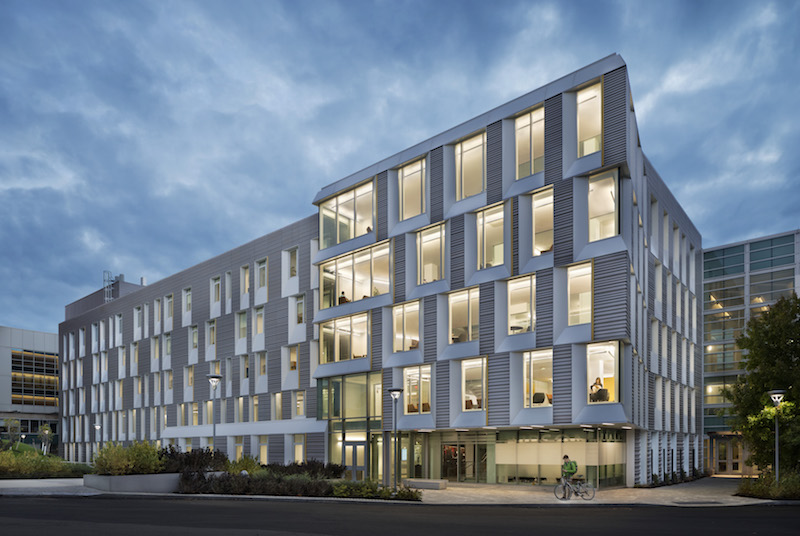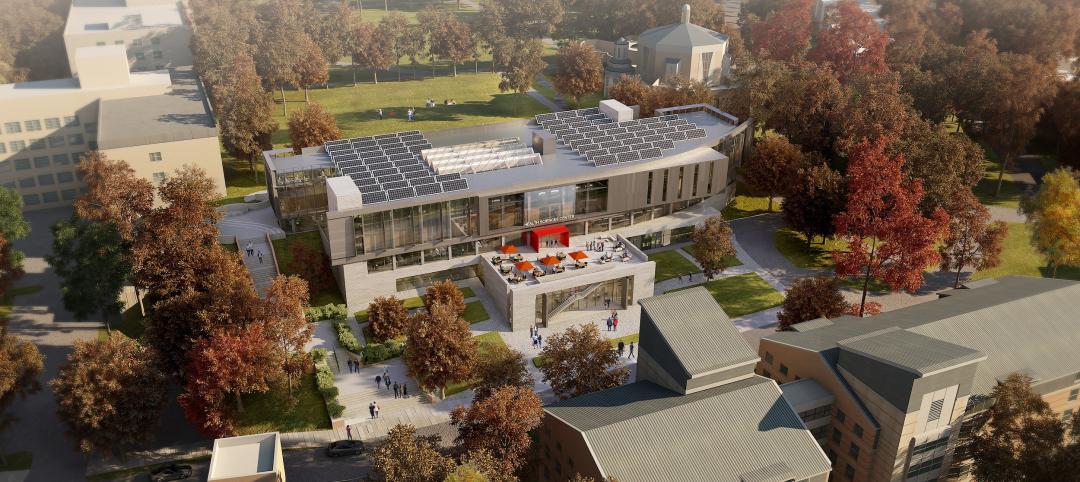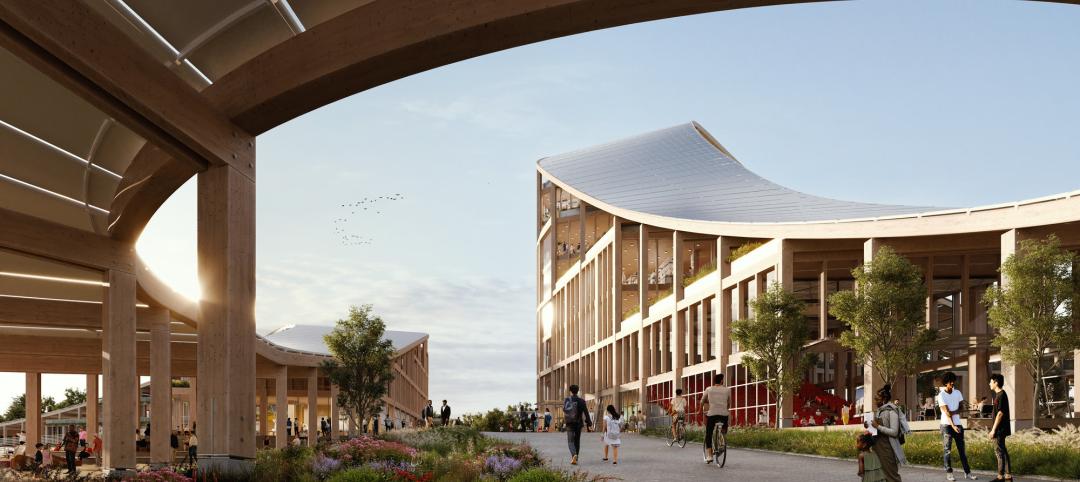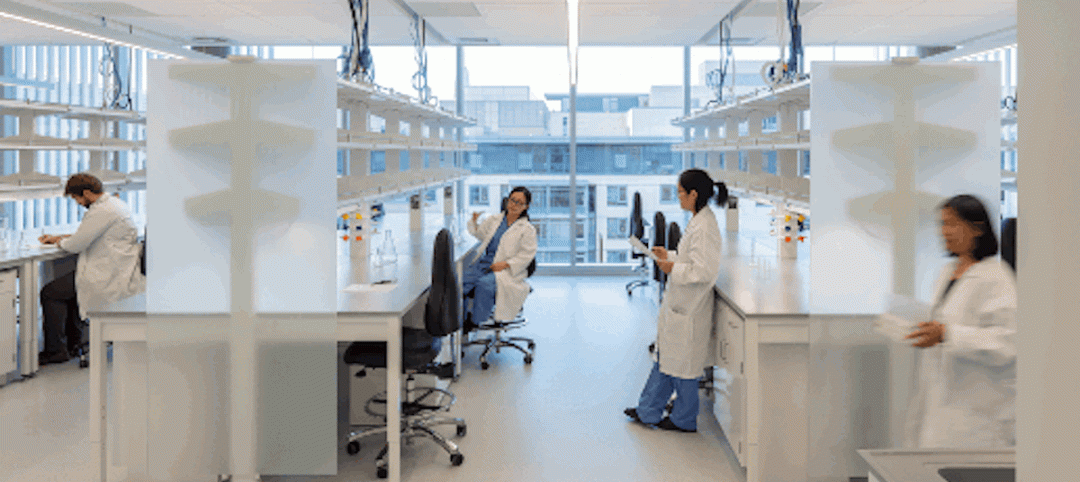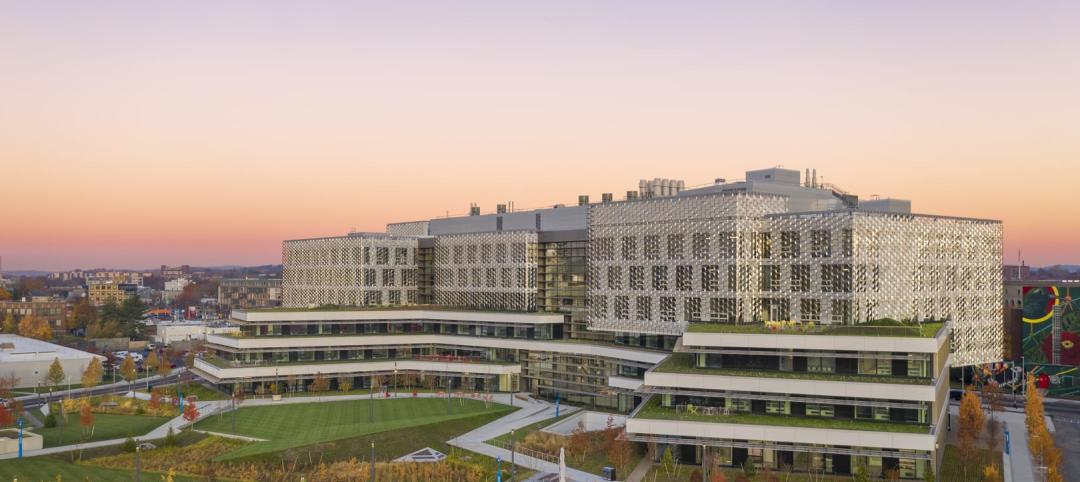The recent transformation of Cornell University’s 160,000-sf Upson Hall could become a blueprint for how this Ivy League college updates other buildings within the engineering quad of its Ithaca, N.Y., campus.
The $74 million project maximized Upson Hall’s interior space featuring four new conference rooms, three social lounges, and public corridors for collaborative learning and research. Advanced envelope, HVAC, and lighting systems were installed to boost the building’s energy performance. And a variegated façade design, composed of terracotta and vertical windows, brings more natural light into the building.
A key factor in this project was the early and ongoing collaboration between the Building Team’s architects Perkins + Will (the original designer of Upson Hall in the 1950s) and Lewis.Tsurumaki.Lewis; with the engineers Thornton Tomasetti and ME Engineers; and Cornell University Sustainable Design.
P+W and LTL went so far as to embed staff members in each other’s offices during the project. And the collaboration with the engineers was critical because some of the client’s ideas for this building were at cross-purposes. “How do we design a façade that would maximize daylight and thermal capacity at the same time?” said David J. Lewis, a Principal with LTL Architects. The Building Team needed to reconcile aesthetic, energy, and daylight objectives, which included balancing the building’s wall-to-window ratio.
The collaboration “started with everyone being at the table, and with each team member’s commitment” to the process, says Robert Goodwin, architectural design director at P+W’s New York office.
Goodwin and Lewis are Cornell grads.
There was some consideration given to tearing down the building and constructing new. But that was quickly scotched, says Goodwin, because Upson Hall is located between three other buildings on the quad, and is attached to an atrium. The client and Building Team decided, instead, to completely gut the existing building and replace the façade strategically.
The new façade is cantilevered in a way that creates space for social interaction at the corner of the building, says Lewis.
Goodwin says Cornell was a collaborative partner on this project, and its aspirations for sustainability “were very high.” (At one point there was some discussion about reconstructing Upson Hall to Passive House standards.)
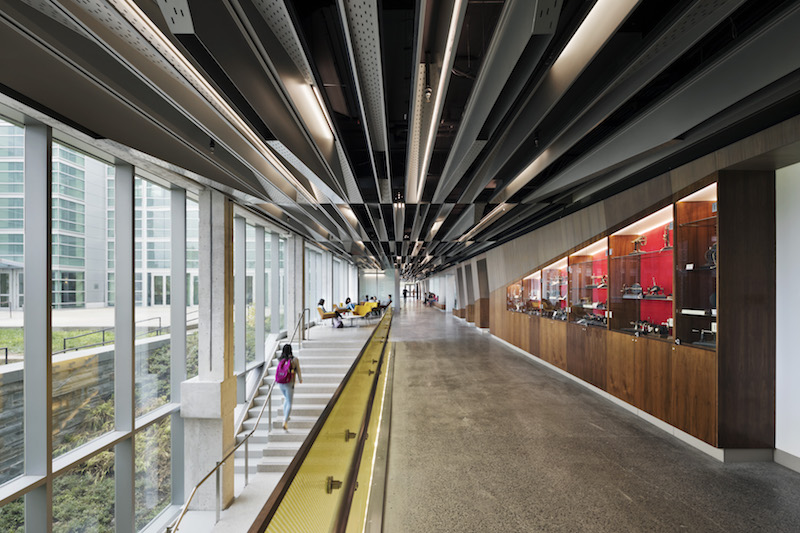
The building was designed with four new conference rooms, three social lounges, and public corridors for collaborative learning and research. Image: Michael Moran Photography
The building, which is currently LEED Gold-certified, pending Platinum certification, serves as a “living sustainability lab,” enabling mechanical and aerospace engineering students to work, learn and study in a high-performance, technologically advanced facility.
Upson Hall’s new design specifications will be applied to the other six Cornell buildings located within the engineering Quadrangle over the coming years.
LTL and P+W were so pleased with the interdisciplinary approach the Building Team took that the firms have talked about working together on future products. The revelation for Goodwin was that it’s possible to collaborate of projects in a different way that integrates practices. “This was my first time as a design director that I didn’t wear a design hat. It was very efficient.”
Related Stories
University Buildings | May 5, 2023
New health sciences center at St. John’s University will feature geothermal heating, cooling
The recently topped off St. Vincent Health Sciences Center at St. John’s University in New York City will feature impressive green features including geothermal heating and cooling along with an array of rooftop solar panels. The geothermal field consists of 66 wells drilled 499 feet below ground which will help to heat and cool the 70,000 sf structure.
Mass Timber | May 1, 2023
SOM designs mass timber climate solutions center on Governors Island, anchored by Stony Brook University
Governors Island in New York Harbor will be home to a new climate-solutions center called The New York Climate Exchange. Designed by Skidmore, Owings & Merrill (SOM), The Exchange will develop and deploy solutions to the global climate crisis while also acting as a regional hub for the green economy. New York’s Stony Brook University will serve as the center’s anchor institution.
University Buildings | Apr 24, 2023
Solving complicated research questions in interdisciplinary facilities
University and life science project owners should consider the value of more collaborative building methods, close collaboration with end users, and the benefits of partners who can leverage sector-specific knowledge to their advantage.
Green | Apr 21, 2023
Top 10 green building projects for 2023
The Harvard University Science and Engineering Complex in Boston and the Westwood Hills Nature Center in St. Louis are among the AIA COTE Top Ten Awards honorees for 2023.
Higher Education | Apr 13, 2023
Higher education construction costs for 2023
Fresh data from Gordian breaks down the average cost per square foot for a two-story college classroom building across 10 U.S. cities.
Market Data | Apr 11, 2023
Construction crane count reaches all-time high in Q1 2023
Toronto, Seattle, Los Angeles, and Denver top the list of U.S/Canadian cities with the greatest number of fixed cranes on construction sites, according to Rider Levett Bucknall's RLB Crane Index for North America for Q1 2023.
University Buildings | Apr 11, 2023
Supersizing higher education: Tracking the rise of mega buildings on university campuses
Mega buildings on higher education campuses aren’t unusual. But what has been different lately is the sheer number of supersized projects that have been in the works over the last 12–15 months.
Contractors | Apr 10, 2023
What makes prefabrication work? Factors every construction project should consider
There are many factors requiring careful consideration when determining whether a project is a good fit for prefabrication. JE Dunn’s Brian Burkett breaks down the most important considerations.
Smart Buildings | Apr 7, 2023
Carnegie Mellon University's research on advanced building sensors provokes heated controversy
A research project to test next-generation building sensors at Carnegie Mellon University provoked intense debate over the privacy implications of widespread deployment of the devices in a new 90,000-sf building. The light-switch-size devices, capable of measuring 12 types of data including motion and sound, were mounted in more than 300 locations throughout the building.
Architects | Apr 6, 2023
New tool from Perkins&Will will make public health data more accessible to designers and architects
Called PRECEDE, the dashboard is an open-source tool developed by Perkins&Will that draws on federal data to identify and assess community health priorities within the U.S. by location. The firm was recently awarded a $30,000 ASID Foundation Grant to enhance the tool.


